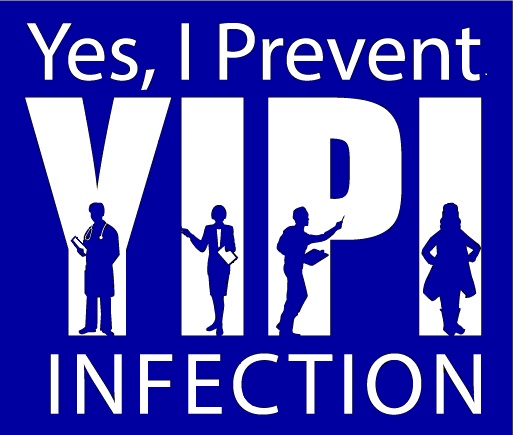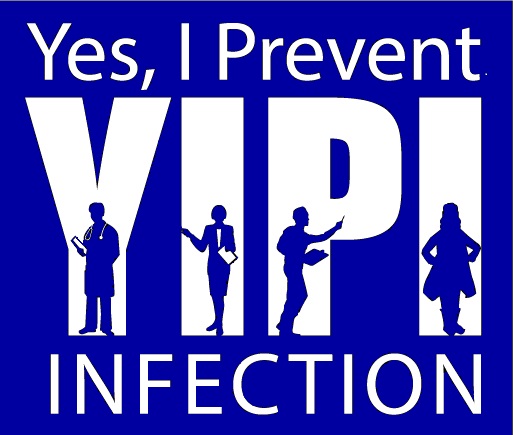 It’s an acronym most people outside of the healthcare community don’t know.
It’s an acronym most people outside of the healthcare community don’t know.
But it’s one all VA health clinician knows very well. They are working hard every day to keep it out of their hospital.
HAI – it stands for Healthcare Associated Infections. VA has numerous national programs and local efforts addressing and reducing the incidence of HAIs.
Healthcare Associated Infections can have devastating emotional, medical and financial consequences, which is why VA stresses the importance of continual prevention efforts.
There are many ways infections can threaten the health of hospital patients. The CDC provides preventive information on the following HAIs at their website.
- Central Line-associated Bloodstream Infection
- Catheter-associated Urinary Tract Infections
- Surgical Site Infection
- Ventilator-associated Pneumonia
In a recent webinar, VA marked International Infection Prevention and Control Week with reports on the success of VHA programs related to infection prevention and control. It was an excellent opportunity to increase awareness of everyone’s role in infection prevention and control and celebrate the work being done in VA to prevent and reduce HAIs.
Some of the good news highlights from the webinar:
- At VA, the rate of Surgical Site Infections, which was already low, has steadily declined.
- VA’s Initiative to Reduce Outpatient Hemodialysis Infectious Events has yielded a significant decrease in total bloodstream infections, access-related infections, and vascular access infections.
- VHA Employee Health continues to successfully coordinate, collaborate and provide VHA employees with tuberculosis screening, sharps injury prevention, immunizations, exposure incident prevention, and education related to infection prevention and control.
- VA is recognized as a leader in implementing Legionella Prevention practices in U.S. healthcare. A VA Directive is cited as an example of Legionella prevention policy on the CDC website.
- VA Community Living Centers have seen a steady decline in methicillin-resistant Staphylococcus aureus (MRSA) infections. There are active programs to prevent catheter-associated urinary tract infections and other infections. The central line-associated blood stream infection rate has decreased significantly.
- The VHA Antimicrobial Stewardship Program was chartered in May, 2011 and is co-chaired by Pharmacy Benefits Management & National Infectious Diseases Service. This program has developed a highly active National Antimicrobial Stewardship Taskforce and national resources to help guide clinicians concerning antimicrobial use.
- The Multidrug Resistant Organism (MDRO) Prevention Initiative began in 2007 as the MRSA Prevention program, expanding to include other MDRO. From 2007 to 2015 MRSA infection rates in ICUs and non-ICUs nationwide dropped significantly. Clostridium difficile infection (C. diff) hospital onset infection rates from 2012 through June 2015 have been reduced overall since the start of the program in 2012.
- In 2006, VA began introducing initiatives to reduce device-associated infection (DAI) rates. The implementation of infection prevention bundles for DAIs has resulted in a statistically significant reduction in these infections in VA healthcare facilities nationwide.
- Our campaign titled “Infection: Don’t Pass It On!” provides products, guidance, communications, continuing education, on-line resources concerning infection prevention, flu vaccinations, hand hygiene, prevention of flu and other respiratory illnesses, pandemic flu, and an annual VA Influenza Manual.
Infection prevention and control is everyone’s responsibility. It is one of our most important goals and successes like these demonstrate that we are striving every day to keep our Veterans healthy and safe.
About the Author: Gary Roselle, MD, FACP is the Director of the VHA National Infectious Disease Service (NIDS)
Topics in this story
More Stories
The Medical Foster Home program offers Veterans an alternative to nursing homes.
Watch the Under Secretary for Health and a panel of experts discuss VA Health Connect tele-emergency care.
The 2024 National Veteran Suicide Prevention Annual Report provides the foundation for VA’s suicide prevention programs and initiatives.








I am a fan of your blog postings and am a subscriber. However, this last post about infections at the VA being on the decline, saying how VA doctors are thoroughly and specifically educated on infections from abscesses, and surgery. If this is supposed to be the case, then I don’t think the VA on Temple St. In Los Angeles got the memo, or the info.
My fiancee passed away from septic shock on September 30, 2015. He was an honorably discharged member of the U.S. Army and served as a VA medic in the war. He had service connected mental and physical disabilities.
Well, 2 days prior yo his passing, he went to his local VA clinic on Temple St., in Los Angeles, VA. Hr saw his regular physician, who informed him of an abscess he had accompanied with sweating and chills, flu- like symptoms. The doctor simply gave him clyndomyacin and aspirin, then sent him home. 2 days later after continued sweating intensely, and an incredibly high fever, he collapsed in the hallway of our building, at which time I called the ambulance. They thought he was taking his symptoms ( my fiancee came home from Vietnam with a drug habit and , to this day went to the VA methadone clinic. Anyway, the paramedics dismissed his symptoms as the actions of a drug seeker. Minutes later, in the ambulance, prior to arrival at the hospital, my fiancee suffered a heart attack and was rendered unconscious and put on a respirator. That was @ 8:30 am. The doctors at USC County hospital had no idea what we wrong with him and his condition was too dire to do any tests. At approximately 3:20 pm, that same afternoon, he had another heart attack, one that he did not come back from, and was pronounced dead at 3:30 pm.
He was my best friend of 6 years, my fiancée, a father of 3, grandfather of 10, an American hero, and a friend to all who knew him. So I’m sorry, but I have to disagree with your findings in this post. Martin’s condition should have been easily assessed. But now, my friend is gone for something that should have been an easy assessment, but left him dead. I think your doctors need further training on taking the time to properly treat and assess their patients, as opposed to rushing them out the door, and on to the next, just waiting to clock out in an impossible attempt to beat L.A.traffic home. Whatever happened to CARING about your patients ‘ care, and The Hypocratic oath.
More needs to be done about education on these simply assessed infections. Please don’t let him die in vain.
Thank you for your time and consideration for one of our fallen heroes. Thank you again, Ashley Bridges
Miss Bridges, I am sorry for your loss. I have edited your commit to remove the protected health information. Thank you for sharing your story in this time of grief in hopes of benefiting other Veterans.
How do I get a VA I’d card. I’m a honorable discharged veteran from the Navy (E5)